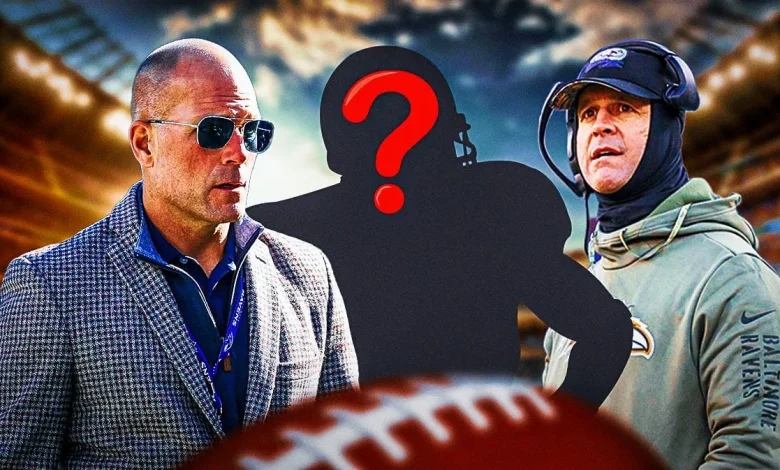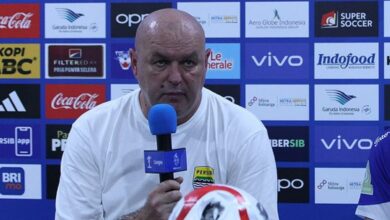Ravens’ riskiest free agency move in 2024 NFL offseason

The Baltimore Ravens needed to do something this offseason after yet another disappointing playoff exit in 2023.
The Kansas City Chiefs defeated the Baltimore Ravens in the AFC Championship Game, despite having the best record in the NFL at the end of the previous campaign. As it grew more and more clear that Baltimore lacked weapons for Lamar Jackson, the team managed just 10 points in the loss.
The Ravens’ issue was that they had to take care of a few of their own free agents, namely defensive lineman Justin Madubuike, who the team re-signed to a huge contract. However, they were not as fortunate when linebacker Patrick Queen joined the Pittsburgh Steelers, who were in the same division.
But even still, Baltimore’s most prominent issue was clearly on the offensive side of the ball.
In spite of boasting the league MVP in Jackson, the Ravens’ offense looked decidedly ordinary—if not one-dimensional—against the Chiefs, which led to Baltimore signing running back Derrick Henry to a two-year deal worth up to $20 million in free agency.
But was this the right move for a Baltimore franchise that has been struggling to get over the hump?
Why signing Derrick Henry is a risky move for the Ravens
The University of Alabama product spent the first eight years of his NFL career with the Tennessee Titans, making four trips to the Pro Bowl while also earning a First-Team All-Pro selection. In addition, Henry led the league in both rushing yards and rushing touchdowns in back-to-back campaigns in 2019 and 2020, topping out at 2,027 yards and 17 scores in the latter season.
But the Ravens are not getting that version of Derrick Henry.
They are getting the 30-year-old, obviously declining iteration of the once-dominant running back.
Henry did make the Pro Bowl last year, registering 1,167 yards and 12 touchdowns as a rusher, but he averaged a pedestrian 4.2 yards per carry. For reference, he logged 5.1 and 5.4 yards per attempt, respectively, in 2019 and 2020. He boasts a lifetime average of 4.7 yards per tote. In each of the last three seasons, however, Henry has come in well under that mark.
Baltimore’s ground game is always elite, thanks much in part to Jackson. The Ravens ranked No. 1 in the NFL in rushing last season, and that was with Gus Edwards leading Baltimore’s running backs with 810 yards. Jackson led the team with 821.
So, did Baltimore really need to add Henry?
Let’s face it: due to Jackson’s brilliance as a dual threat, the Ravens definitely could have gotten by with Justice Hall and Keaton Mitchell as their top two backs in 2024. Maybe they could have made a cheap signing somewhere to solidify the backfield and guard against injury, but signing Henry seemed unnecessary.
Where Baltimore really needed to add talent was at wide receiver.
The Ravens are entering next season with Zay Flowers and not a whole lot else at the position. Right now, Rashod Bateman—a former first-round pick who is approaching bust status—is penciled in as the No. 2 receiver. Nelson Agholor, Deonte Harty and incoming rookie Devontez Walker round out of the rest of the group.
Baltimore has tried to address the receiver position through the draft over the years, but outside of Flowers, it has failed miserably. The Ravens were able to nab Marquise Brown in 2019, but Brown lasted three seasons with the club before requesting a trade.
I understand that big-name receivers may not want to go to Baltimore because their numbers will likely take a dip. Jackson is not really an ideal quarterback for elite wide outs, as he likes to run the football and seems to prefer throwing to his tight ends. Or, maybe it’s just that Jackson has never really had a top-flight receiver to throw to?
The Ravens sunk at least $16 million (the deal could be worth up to $20 million) into Henry when they could have taken that money and at least shored up the receiving corps. That isn’t to say they had to go after Calvin Ridley, but they couldn’t at least pursue someone like Gabe Davis, Curtis Samuel or K.J. Osborn? Because right now, Baltimore’s depth behind Flowers is pitiful.
Again, Baltimore would have had a great rushing attack with or without Henry. It didn’t need to sign him.
Some people loved this move, but it’s hard to understand why. Henry is a descending running back at this point. The Ravens would have been better off taking that money and investing into the wide receiver position, where the club actually subtracted Odell Beckham Jr. this offseason.




